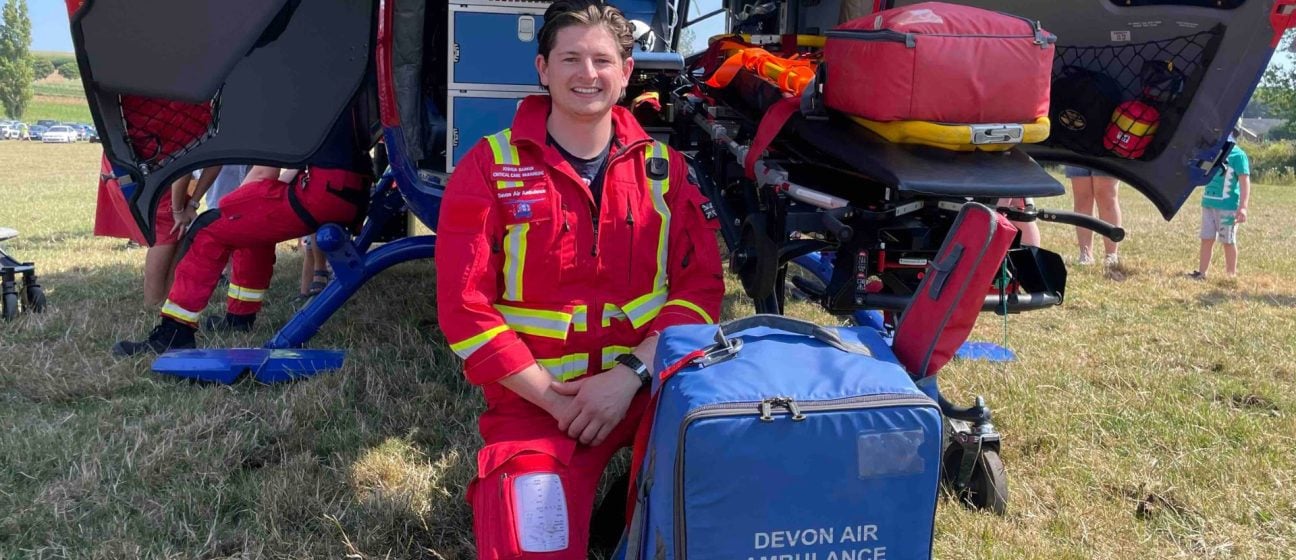
Learn more about how being sustainable helps to save lives.
Our commitment to Environmental Sustainability and Stewardship isn’t confined to reducing our carbon footprint; it’s also about making considered choices around the resources we consume, many of which are clinical in nature, such as medical consumables.
Responsibly reducing waste
Medical consumables – items like bandages, syringes, and airway equipment – are essential to our lifesaving work. But like many healthcare providers, we face the challenge of managing stock that can expire before use. That’s why our Clinical Operations Support Team has been working hard to reduce waste and improve efficiency.
We’ve already seen a drop in wastage thanks to changes in how we order supplies. By adjusting our minimum and maximum stock levels, we’re now ordering less of most items, which means fewer unused consumables end up being discarded.
Tracking for transparency
To better understand and manage our usage, we’re developing a system to record and report consumable wastage. This data will soon be visualised in dashboard reports, helping us make smarter decisions about stock levels and ordering patterns. It’s a work in progress, but it’s a vital step towards greater transparency and accountability.
Giving supplies a second life
We’re proud to say that our unused, out-of-date consumables don’t go to waste. Through a longstanding partnership with a contact at SWASFT, these items are redistributed to other charities that can make use of them. Recently, we also responded to a request from a Ukrainian charity seeking medical supplies. After reaching out, we were able to donate 17 boxes of consumables – twice!
Collaborating for smarter stocking
Looking ahead, we’re exploring a new collaboration with Derriford Hospital. For items we rarely use- especially paediatric consumables, we hope to draw from their stores and pay only for what we take. This approach not only reduces waste but also ensures we’re using resources more efficiently and sustainably.
Sustainability means saving lives. Every step we take to reduce waste and improve resource management helps us stay resilient, responsive, and ready to deliver critical care.



